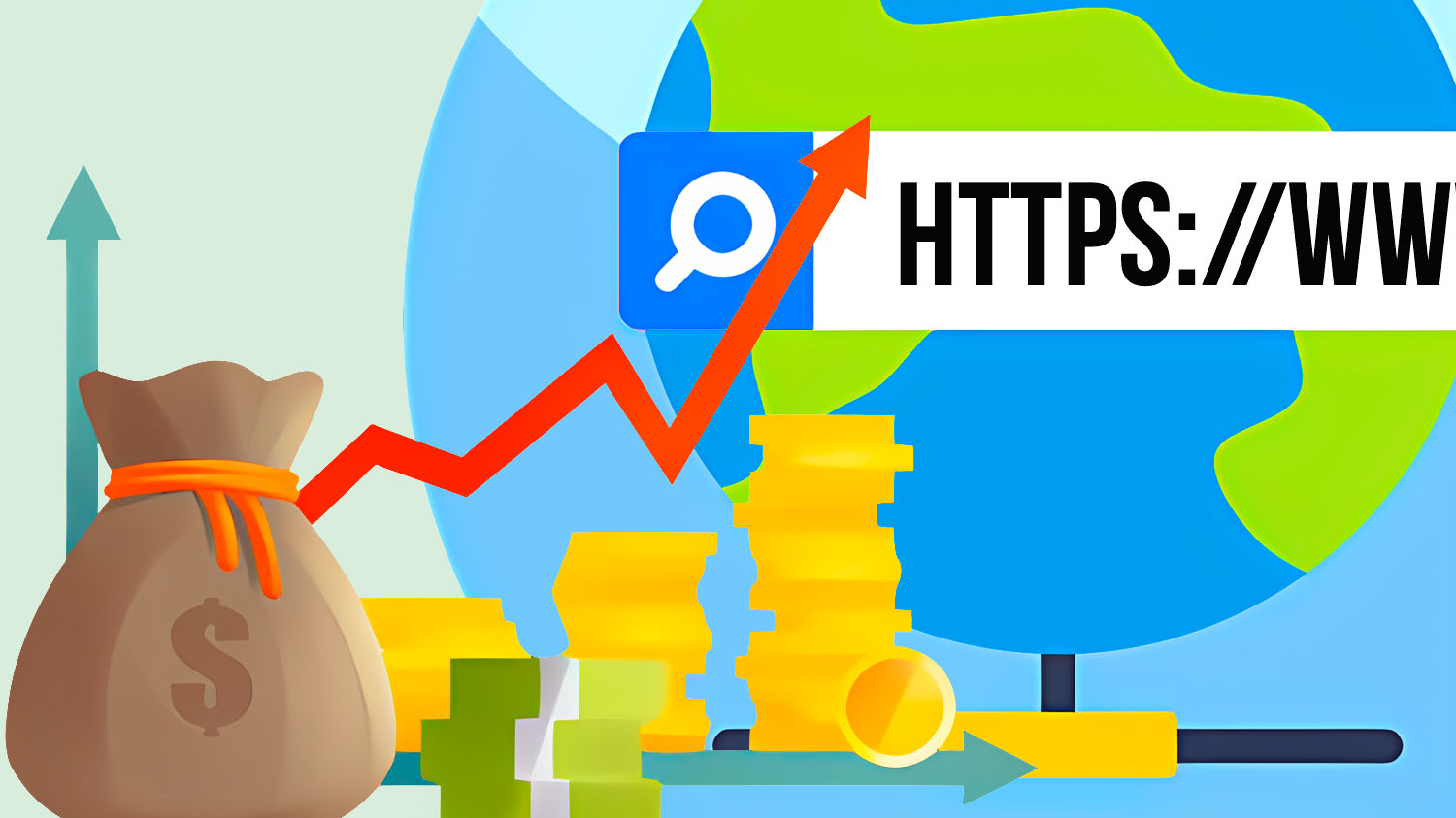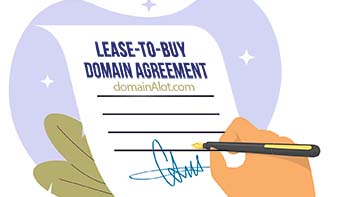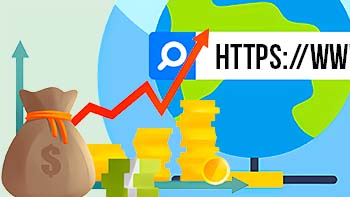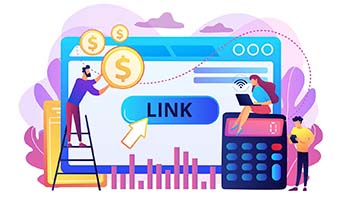What Is A Domain Worth?
A Complete Guide to Understanding Domain Value

If you've ever thought about buying or selling a domain name, you've probably asked the same question that everyone else does: what is this domain actually worth?
Unlike cars or houses, domains don't come with a fixed price tag or depreciation table, and just because a domain might have been registered a long timne ago doesn't make it more or less valuable. The fact is that one domain name might be worth the registration fee, while another could sell for millions.
The reality is simple but frustrating. Despite what the vast majority of A.I driven domain evaluation tools, used by registrars to overly inflate values tell you, a domain is worth whatever someone is willing to pay at the moment they need it. The challenge is figuring out why certain names attract life-changing offers while others never get a bite.
The Core Factors That Influence Domain Value
When you strip it down, a handful of qualities consistently drive domain value:
- Length and Simplicity: Shorter domains almost always win. FB.com sold for $8.5 million USD to Facebook in 2010. Compare that to something like TheBestSocialNetworkOnline247.com, where no one is paying big money for that.
- Memorability: Domains that pass the "one-hearing test" (you hear it once and remember it) are inherently valuable. That's why Twitter.com and Zoom.com exploded as global brands.
- Keywords and Industry Relevance: High-value keywords in lucrative industries sell for huge amounts. Insurance.com sold for $35.6 million USD in 2010. Hotels.com was valued at $11 million USD. These names capture industries where every customer lead can be worth hundreds or even thousands of dollars in revenue so naturally are seen as incredibly valuable properties.
- Extension (TLD): .com dominates. Even though .ai, .io, and .xyz have all carved out niche value, make no mistake, the majority of the biggest sales still carry the .com top-level domain. Voice.com sold for $30 million USD in 2019. Would Voice.net have commanded the same? Almost certainly not.
- Branding Power: Sometimes value isn't about keywords at all. A made-up but catchy brand like Google.com or Spotify.com could be priceless if a company adopts it.
- Traffic and History: Some domains are valuable because they already attract type-in traffic. Others have SEO authority from years of backlinks. But a toxic history (a domain plagued by spam or being prone to blacklisting penalties) can quickly see its value slashed.
Real-World Examples
Over the years I have read dozens of articles written by experts purporting to be able to provide formulas or the use of machine-learning to accurately calculate a domain's actual value. In every instance I have never found this to be true. So, instead of false claims, let's look at some real world examples and public sales that can help make things clearer:
- Cars.com was valued at $872 million USD as part of a company transaction in 2015. A one-word, category-defining .com that is quite literally priceless for any automobile focused business.
- NFTs.com sold for $15 million USD in 2022, driven by a booming industry keyword and the rise of Web 3.0.
- 360.com sold for $17 million USD to Qihoo, a Chinese tech company, because a short, numeric domain was a perfect match for their branding.
- On the other end, there are hundreds of thousands of "keyword-stuffed" domain names that sit unsold in registrars' databases and aftermarkets like Sedo because they're clunky, hard to spell, or not truly brandable.
For a domain owner wondering what their domain might be worth, the difference between Photos.com and PhotoApp.com could easily be six figures. While you may find that hard to believe, the reason for such discrepancy is actually simple. You see, both are good and arguably valuable, but one is generic and category-defining while the other is more descriptive and despite its appeal, less universal.
Common Missteps in Valuing Domains
New domain owners often overestimate value. Owning BestKitchenAppliances247.com doesn't mean that buyers will pay $50,000 USD for it, but it does mean that you paid $15 USD to register it, and you'll now need to pay the same, if not higher amount each passing year just to be able to renew and keep it.
The market is brutal in weeding out low-quality names and anyone who tells you otherwise, or that buying and selling domain names is an easy way to earn money in the modern economy is not being honest with you. That said, valuable names are sometimes underestimated. For example, the early owners of Slack.com and Ring.com had no idea that those short, simple words would become billion-dollar brands, and both were sold for a pittance of their actual value, showing that timing and industry trends matter just as much as any intrinsic quality.
What Actually Decides A Domain's Value?
There are three major "appraisers" of domain value:
- The Market: The strongest appraiser of a domain's value is the market. Buyers set the ultimate price. If a well-funded startup decides they must have your domain, the value skyrockets. If no one in that industry is buying, the same name could sit unsold for years.
- Automated Appraisal Tools: Sites like GoDaddy's appraisal tool or Estibot assign values based on length, keywords, and past sales. At least, this is what they claim. They are, however, far from accurate and often miss brandables, cultural shifts, and industry booms which are all highly influential and deciding criteria for any domain buyer. Much has been written and said about these automated tools in recent years and the debate continues to rage on where many believe that these tools are self-fulfilling, in that they over inflate domain values in the interests of the registrars themselves. As sites like GoDaddy and Estibot earn large commissions based upon the value and eventual sale of domains. Therefore, the higher the assigned value, the more money they earn. However, to leave the debate aside, these automated appraisal tools can offer broad ballpark ranges for a domain owner to work from.
- Experts and Brokers: Seasoned brokers and marketplaces like domainAlot.com bring real insight to domain owners, combining comparable sales data with market demand. A human eye can see potential where algorithms fail, and more importantly, without commission incentives (domainAlot.com is the only Commission-Free Domain Marketplace). Because of this, domainAlot.com is uniquely positioned to provide an honest and realistic evaluation for any domain owner.
Famous Mis-Evaluations And Market Misunderstanding
The history of domain sales is filled with examples of names being drastically misvalued, both under and over:
- As mentioned, in the early 2000s, Facebook.com bought fb.com for a whooping $8.5 million USD. At the time, many thought it was excessive, but to Facebook, the shorthand was worth every penny and has proven, in part, to have contributed to their growth and success.
- Meanwhile, names like Beer.com (sold for $7 million USD in 2004) and Candy.com (sold for $3 million USD in 2009). Both seemed outrageously over-priced and were reported in countless business journals as being such. However, in hindsight, they have both proven to be bargains for category-defining assets.
- Conversely, many domain owners, believing that a punchy, catchy domain name is the key to earning their fortune, list long, keyword-stuffed domains for tens of thousands and often hundreds of thousands in the hope that they will sell. No buyer sees that value, and such mis-evaluations lead many owners to sit on their domains in the belief that the right buyer will come, but as sadly is more often the case, they never do, simply because the market does not share the same opinion about what a domain is worth.
A Practical Framework for Valuing Your Domain
When you're trying to determine and figure out what your domain might be worth, ask yourself the following:
- Is the domain short, simple, and easy to spell?
- Is it a .com, or a strong alternative that fits the industry (like .ai for AI startups)?
- Does it contain a high-value keyword?
- Could the domain realistically be a global brand?
- Does it already receive traffic and/ or have SEO authority?
A common mistake made by domain owners is pretending, or convincing oneself that the answer to one or more of these questions is true when in fact it is not. There's no point in trying to pretend for example that the answer to: is it short? Is yes, if the domain name is ten or more characters in length. That's not short, no matter how much you might like it to be, and the market will disagree with you and any valuation based upon your interpretation of "short".
As I said, the market is brutal in weeding out low-quality names, and no attempt to disguise a domain for anything other than what it is will help in increasing its value.
Final Thoughts
So, with a framework to evaluate your domains, that leads us to the million dollar question. What is a domain worth?
As I hope to have made clear, there is no single formula. It's a blend of length, memorability, extension, industry demand, and timing. A name that looks ordinary today might become invaluable tomorrow - if the right buyer comes along. But where does that leave you?
If you're unsure, you don't have to guess. Marketplaces like domainAlot.com do not rely on commissions and can afford to be completely transparent. This alone makes it easier to see what sellers are expecting realistically for their domains, and that in turn should provide you with an indication of what a buyer can expect to pay. Compare your domain against others, and even list with flexible options like leasing or lease-to-own. You might be surprised to see that a domain you own is suddenly more attractive when it can be leased or acquired gradually over time. Smaller payments can make a domain appear more affordable even when they add up to a similar amount. That's the power of perception, and at the same time, you might discover that your domain's estimation is too low based upon enquiry and request.
Remember, honesty really is the best policy. A domain isn't just a string of characters. It's digital real estate. And like real estate, the right property in the right place at the right time can change everything. And just like real estate, an over-priced house or apartment can stay on the market indefinitely until either the market changes or the owner adjusts to market demand. Which leads me neatly to my final point. When have you ever heard of the real estate market adapting to the seller? So why would anyone expect this from selling a domain? It is never going to happen.
While the market will always have some level of dynamics, a seller must adapt their strategies to meet the market's current conditions, buyer preferences, and competition. So, if you want to know what a domain is really worth, then you have to know that the answer is not up to you. In the end, it's as simple as what someone is willing to pay. The challenge is not only to price your domain realistcally in a bracket that is comparable to other domains of similar quality, but to convince the market that compared to those offerings, your home is best.





